Медицинский Центр Самсунг с момента основания в ноябре 1994 года стал одной из самых передовых больниц в Корее, приверженных высококачественному лечению и оказанию первоклассного медицинского сервиса. Современные медицинские технологии, развитая инфраструктура и высококвалифицированный персонал МЦ Самсуг позволяют поддерживать высокий уровень востребованности больницы.
Являясь наиболее всеобъемлющим медицинским центром в стране, больница предлагает передовые методы диагностики и лечения онкологических и сердечно-сосудистых заболеваний в таких специализированных центрах, как Комплексный Онкологический центр, Центр протонной терапии и Институт сердечно-сосудистых заболеваний. Наряду с регулярной инновационной практикой лечения сложных заболеваний, МЦ Самсунг направляет усилия по совершенствованию цифровой инфраструктуры, попадая в разряд «умных» больниц.
| Год | Содержание | Изображение |
|---|---|---|
| 2023 | Достижение отметки в 15,000 процедур ультразвуковой бронхоскопии (в среднем более 1000 в год) | 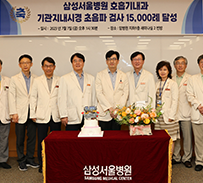 |
| 2023 | Команда по сердечной недостаточности - первые в Корее 100 операций на искусственном сердце HeartMate | 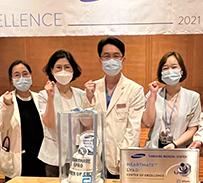 |
| 2022 | Впервые в стране достигнута отметка в 5,000 процедур протонной терапии | 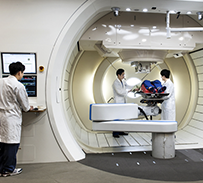 |
| 2021 | Впервые в стране достигнута отметка в 3,000 операций рака молочной железы в год | 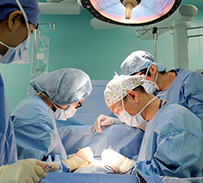 |
| 2021 | Открытие первого в стране центра CAR T-клеточной терапии | 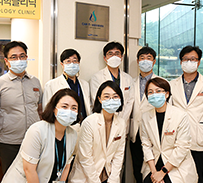 |
| 2020 | Достижение отметки в 15,000 процедур радиохирургии “Гамма-нож” | 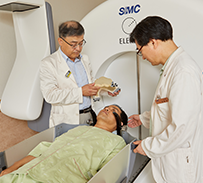 |
| 2019 | Достижение отметки в 300 операций лапароскопической хирургии живого донора печени |  |
| 2019 | Открытие административного здания (кампус Ильвон) |  |
| 2016 | Основание Научно-исследовательского института медицины будущего |  |
| 2015 | Открытие Центра протонной терапии |  |
| 2014 | Основание Института сердечно-сосудистых и цереброваскулярных заболеваний | 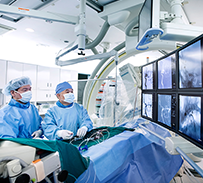 |
| 2008 | Открытие комплексного Онкологического центра | 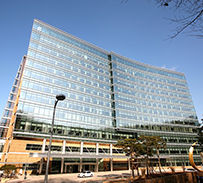 |
| 1994 | Образование Медицинского центра Самсунг |  |